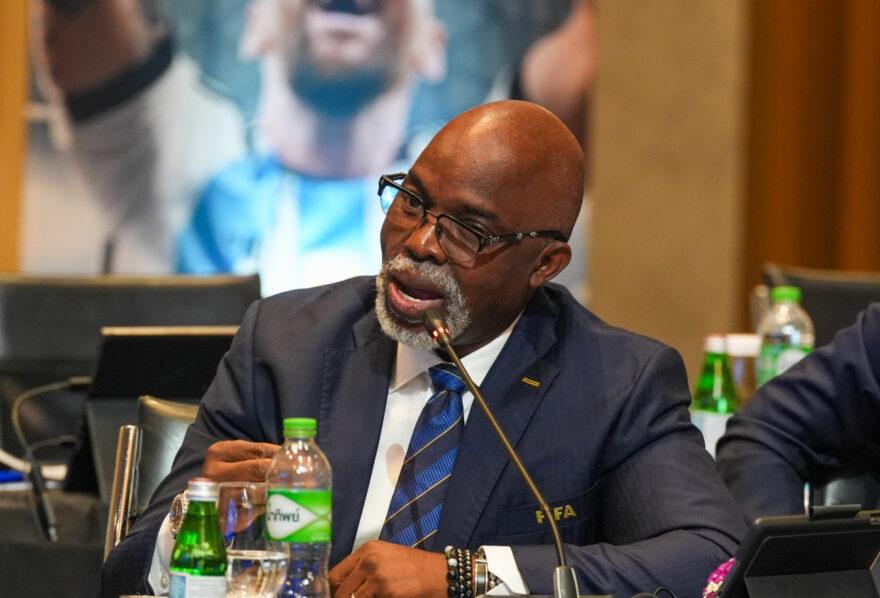Nigeria’s Amaju Melvin Pinnick has suffered a narrow defeat in his bid to retain a seat on the FIFA Council, missing out by just one vote in a high-stakes election held during the 14th CAF Extraordinary Congress in Cairo, Egypt.
Pinnick, a former president of the Nigeria Football Federation (NFF), secured 28 votes but fell short against Mauritania’s Ahmed Yahya and Djibouti’s Souleman Hassan Waberi, who both garnered 29 votes to claim seats on the prestigious global football panel.
Morocco’s Fouzi Lekjaa dominated the election with an overwhelming 49 votes, while Egypt’s Hany Abou Rida and Niger Republic’s Djibrilla Hima Hamidou earned 35 votes each to secure their places on the FIFA Council.
Comoros’ Kanizat Ibrahim also made history by clinching the women’s representative seat with 30 votes, defeating former FIFA Council and IOC member Lydia Nsekera, who received 13 votes, and incumbent Isha Johansen, who managed just seven.
Other candidates, including Zambia’s Andrew Kamanga, Côte d’Ivoire’s Yacine Idriss Diallo, and Senegal’s Augustin Senghor, fell short with 19, 18, and 13 votes, respectively. Benin Republic’s Mathurin De Chacus withdrew from the race before voting began.
In a major highlight of the congress, South African businessman and football administrator Patrice Motsepe was re-elected unopposed as CAF President for a second four-year term.
Read also: Nwankwo Kanu’s Son, Sean, signs for Polish Club Górnik Polkowice
Motsepe, who first took office in 2021, confirmed his re-election at the Cairo assembly, where FIFA President Gianni Infantino was also in attendance. Under his leadership, CAF has seen unprecedented financial growth, with the 2023 Africa Cup of Nations (AFCON) generating a record $72 million in profit—18 times more than the previous edition in 2022.
Despite this progress, Motsepe acknowledged the challenges ahead, particularly in improving football infrastructure across Africa.
“In 2021, 36 African countries were unable to host international football matches in their own stadiums. That number has dropped to 12, but it remains a major concern,” Motsepe said. “At CAF and FIFA, we have a duty to continue investing in sports infrastructure development.”
Another major talking point from the election was the unopposed appointment of Cameroonian football legend Samuel Eto’o to CAF’s Executive Committee.
The former Barcelona and Inter Milan striker, who has served as president of the Cameroon Football Federation (FECAFOOT) since 2021, was initially barred from contesting due to governance concerns. However, the Court of Arbitration for Sport (CAS) overturned the ruling, clearing his path to the committee.
Eto’o’s influence in African football remains strong, as his election was met with enthusiasm from delegates.
The 14th CAF Extraordinary Congress has ushered in a new era of leadership, with experienced and emerging figures taking key positions on the FIFA Council and CAF Executive Committee.
With Motsepe at the helm and a renewed focus on governance, financial stability, and infrastructure development, African football is poised for significant transformation in the coming years.
